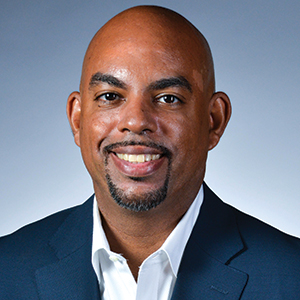The health challenges of an alarming number of people can be traced to the social determinants of health, and that’s increasingly a real concern for employers.
Those social determinants — the conditions in which people live, play, work and socialize — impact a person’s overall health, well-being and health outcomes, says Nebeyou Abebe, Senior Vice President of Social Determinants of Health at Highmark Health. Challenges in these areas can show up in the workplace as presenteeism, absenteeism and low productivity.
Food insecurity, in particular, is a major non-medical driver impacting overall health and wellness, as well as increased health care costs.
“Food is central to the human experience,” Abebe says. “By helping address that need, it can help people engage more in their health and realize better health outcomes.”
Smart Business spoke with Abebe about food as medicine, and how employers can help employees address challenges related to food insecurity.
How does food affect health?
Food is a key determinant of health. Food insecurity — when a person is unable to purchase sufficient, well-balanced, nutritious food on a consistent basis — can be a complicating health issue. For those with diabetes or diet-related issues, food insecurity can make managing the condition more challenging. Those who are food insecure also are most likely to struggle financially, so they might also struggle with medication adherence because they can’t afford their medications.
Diet-related chronic conditions, such as diabetes and hypertension, are largely preventable. By being more proactive and focusing on upstream factors, such as diet, downstream outcomes and costs can be affected. Some health plans are offering solutions to help members in the broader community better understand the important role of food in their overall health and wellness.
What is the food as medicine strategy?
The food as medicine strategy is designed to address acute food insecurity issues with programs that can include connecting members to a local food bank or offering medically tailored meals delivered to their home. Programs can also include wraparound support services delivered by a registered dietitian and a community health worker to help members create meal plans and grocery lists, as well as answer any questions they may have about the types of foods that they should be consuming. A social worker can also perform a full assessment of the member’s social needs, and make additional referrals and connections to local and community resources to address other health-related social issues such as transportation or housing.
Where do employers fit into this conversation?
Employers want to control their health care spend as health care costs continue to rise year over year. Thinking about health in its broadest terms can mean helping employees live a high-quality life. To that end, there are health plans that are working closely with employers to identify health-related social needs among their employee population, and equip them with the right tools and resources to take action.
One way to address the health-related needs of employees is by identifying those in the workforce who are experiencing food-related challenges and then connecting them to the right resource, whether that’s a community-based resource or a resource that the employer makes available as part of a benefit offering under their health insurance plan. Employers also can check on the health of their population by incorporating a social determinants of health risk assessment in their annual health risk assessment. That can offer a more complete picture of the health status of their employees.
To be healthy is more than just avoiding illness. There are core drivers that affect health well before a doctor’s involvement. It means thinking holistically about how best to manage health and ensure that the right programs and initiatives are within the reach of those in need. ●
INSIGHTS Health Care is brought to you by Highmark Health

